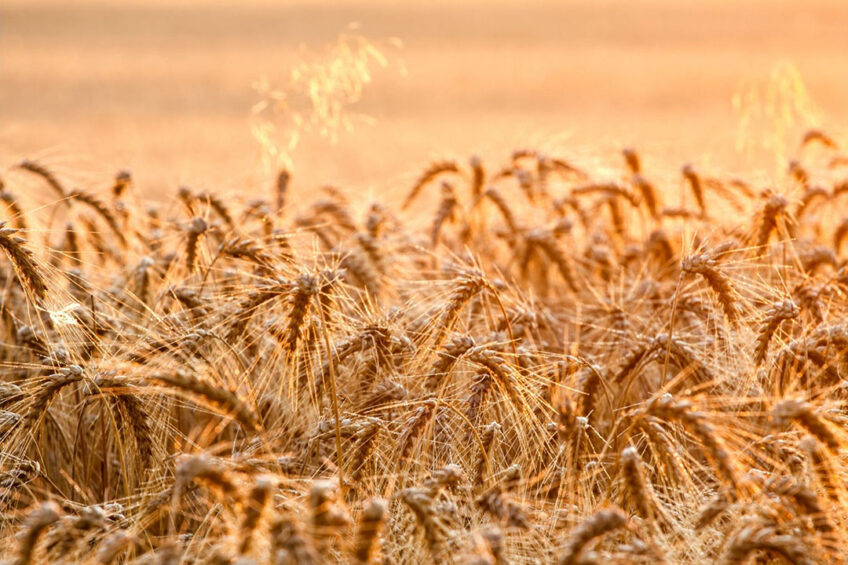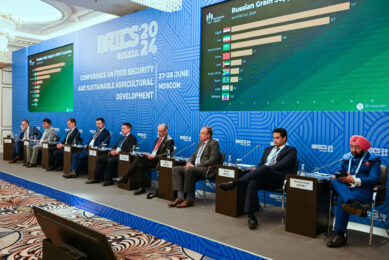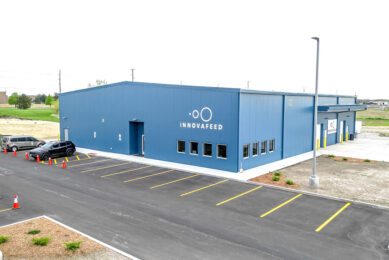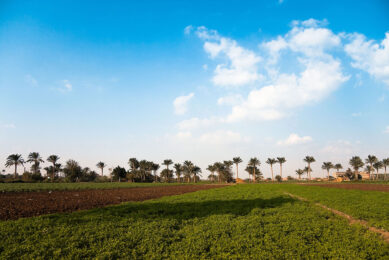Loss of Ukrainian grain exports could hit Africa the hardest

Cuts in grain exports from war-torn Ukraine are likely to hit African nations hardest, according to a report from Germany’s Kiel Institute for the World Economy (11 March).
The Institute said Ukraine supplies large quantities of grain to North African states in particular, which other supply sources could not replace, even in the long-term.
Infrastructure destroyed
Hendrik Mahlkow, trade researcher at the Kiel Institute for the World Economy, said Ukraine was likely to be cut off from the global economy: “Trade routes have been cut, infrastructure destroyed, and all remaining production factors are likely to be directed towards a war economy. As the country is one of the most important grain exporters in the world, and especially relevant for Africa. Losing Ukraine as a supplier will noticeably worsen the supply situation across the continent.”
Long term consequences for Africa
Using a trade model to simulate the long-term consequences for Africa of an end of exports of Ukrainian wheat and other cereals for food production, such as corn or sorghum, the analysis found Tunisia and Egypt would be hardest hit.
- Tunisia: the country’s total wheat imports would permanently decrease by over 15% and imports of other cereals would decrease by 25%.
- Egypt: would import over 17% less wheat and almost 19% less other cereals
- South Africa: would import 7% less wheat and over 16% less other cereals.
- Imports of other cereals would also be noticeably lower in Cameroon (-14%) and Algeria and Libya (-9.6% aggregated).
- In the model, wheat imports would drop significantly in Ethiopia (-9.6%), Kenya (-7.9%), Uganda (-7.1%), Morocco (-6.2%) and Mozambique (-6%).
As a result, prices will rise, in some cases dramatically, particularly in Tunisia, where other cereals would become more than 24% more expensive in the long-term.
Less impact on Europe
Western countries would be far less affected than the African continent by the loss of Ukraine as a grain supplier as they are not as dependent on imports and can better compromised for the shortfall.
Putin’s war against Ukraine shows us the vulnerable points of our agricultural system.
Germany takes action to secure domestic crop production
Germany, for example would import 4.8% less other cereals in the long-term which would result in a moderate price increase of around 2%. Germany however signalled at the end of last week that it wants to roll back some environmental policies in order to boost domestic crop production. The country will allow farmers to sow crops for feed in previously ecologically protected areas and will step up its strategy to increase the competitiveness of domestic legumes such as broad beans and peas.
German Agriculture Minister Cem Oezdemir said in a statement (11 March): “Putin’s war against Ukraine shows us the vulnerable points of our agricultural system. Our measures are therefore aimed at providing rapid assistance – and at making agriculture as a whole less vulnerable to crises.”
Keep food and agricultural markets open
Germany led the group of G7 industrialised nations on Friday (11 March) not to limit their food exports over the war in Ukraine after a meeting of their agriculture ministers. The G7 agriculture ministers statement said: “We call upon all countries to keep their food and agricultural markets open and to take precautions against unjustified restrictive export measures.”
The Statement followed a warning from the Russian President Vladimir Putin the previous day (10 March) that food prices would soar because of sanctions since Moscow is one of the world’s top fertiliser producers.
Call for UK to prioritise food security
Wheat prices continue to soar with a tonne of UK milling wheat now over £300, soya at £460/tonne and fertiliser more than £700/tonne, prompting the UK’s National Farmers’ Union President Minette Batters to demand the UK Government prioritises food security, carries out a full cost analysis of the gas used in the supply chain (heating glasshouses, N fertiliser and CO2) and sets up a market monitoring group to see if intervention is needed.
Potential derailment of Green Deal
The pressure to potentially derail the EU’s Farm to Fork and Biodiversity strategies has been criticised by more than 85 NGOs, who are calling on the EU to implement the Green Deal: More than ever, the EU must shift towards healthy, socially and environmentally friendly farming practices, such as agroecology, organic farming and agroforestry, which provides the only path to ensuring long-term food security, food sovereignty, and the overall sustainability of the food systems. We must turn away from intensive agriculture, industrial fisheries and aquaculture, the statement concluded.











